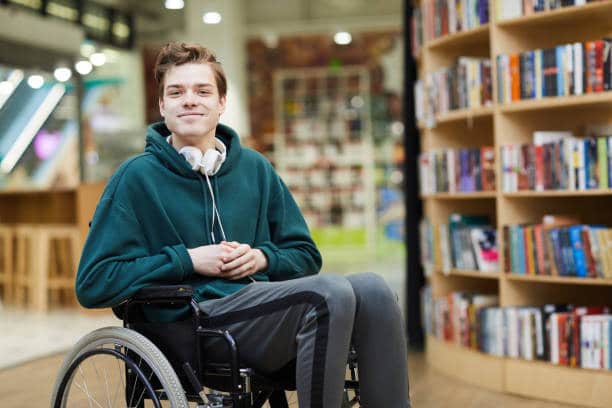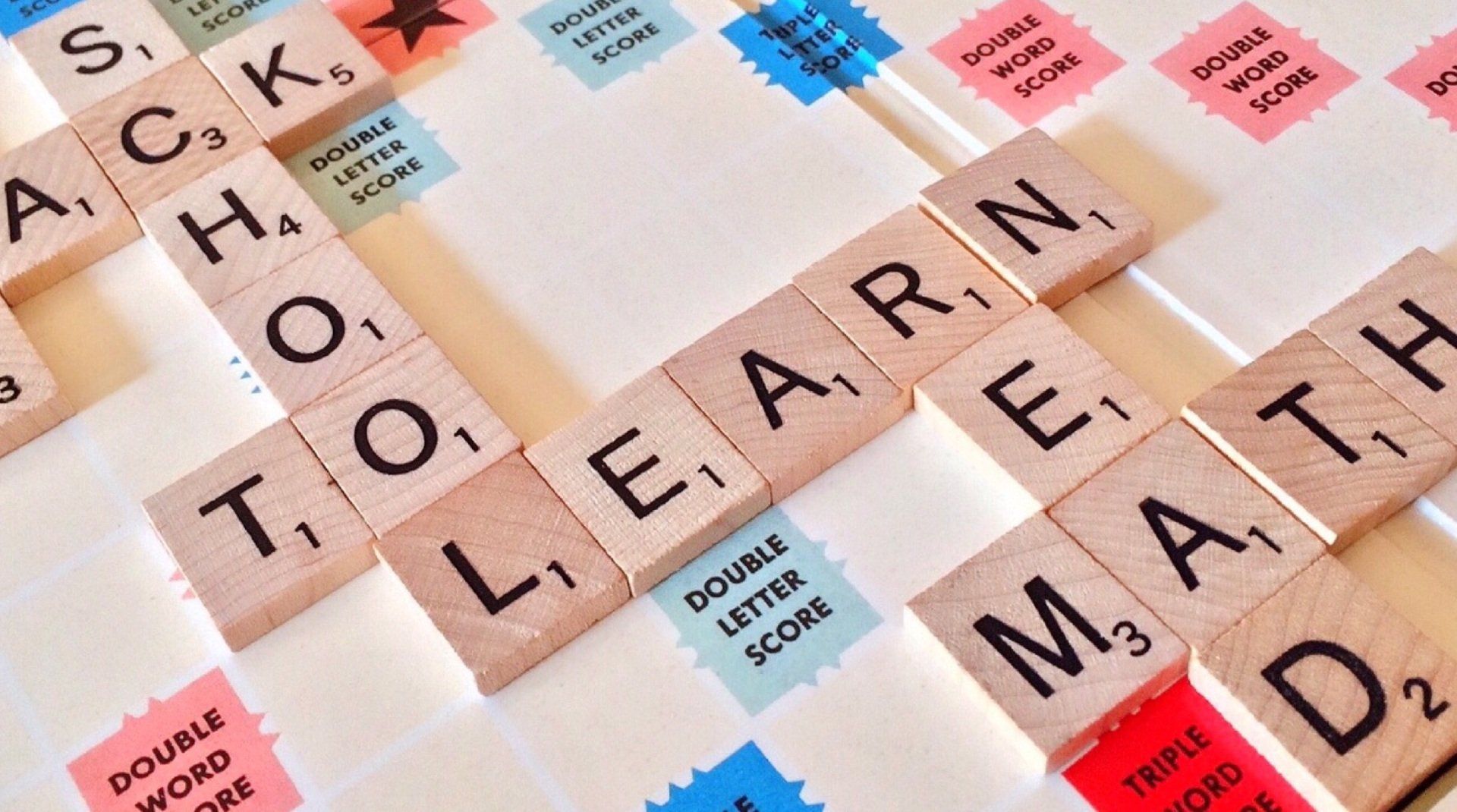Hiring Interns Can Be Very Profitable for Businesses Summer is the most popular time for hiring an intern. High school and college students alike hunt around to fill their summers with meaningful experiences to buff up their resumes and discover their interests. They...
College Resources Available to Disabled Students–Part 2

College Resources Available to Disabled Students–Part 2
A Guide to Help Parents Understand the Options Available to Their Disabled Child
Welcome back for Part 2 of Shamrck’s blog aimed to help parents become aware of the accommodations available for their disabled students. By knowing their options and the available resources, your child will have the best chance of a successful college experience. Let’s get back into it, starting with how your student can begin the process of working with the disability office on campus.
How to Get Started With Disability Services
What are just a few examples of students who should complete the disability applications?
- Students with documented disabilities
- Students requesting academic accommodations
- Students who are receiving treatment for a concussion (head trauma)
- Students with medical conditions that impact their school work
- Students who are pregnant or have other needs related to Title IX
In order for a student to be eligible for disability services they must first contact the on-campus disability office to make sure they meet the requirements. If your student qualifies, they must register with the office and make sure to work with them moving forward. This means your student providing all the necessary documentation promptly, having in-person meetings with the coordinator assigned to their case on whatever basis they find appropriate or necessary (eg meetings held before the start of each semester), and remaining in contact with them about their progress, struggles, or needs. Remember, these disability services are provided through an office that is separate from the admissions office.
What Documentation Do You Need
It is essential that you have current and pertinent documentation of your child’s disability to be able to utilize these resources. The type of documentation they require will vary depending on the type of disability, but will generally include items like a doctor’s medical report or evaluation, including details about date of diagnosis, a diagnostic evaluation and/or diagnostic tests completed, treatments, medications, assistive devices and services that are currently used. Additionally, it will be very important to provide a description of the current functional impact of the disability and the expected impact of the disability (eg expected progression or stability of the condition). There may be other information that the office needs and they will walk you through the process to get anything they require. It is also beneficial if they can rely on the recommendations of professionals that have been treating your child for some time and are familiar with their limitations and what accommodations will help alleviate any disruptions.
Students who claim to have a disability are responsible for providing the university with verification of their disability by providing documentation from an appropriately credentialed professional to receive any necessary academic modification and/or reasonable accommodation. The documentation must substantiate limitation(s) to a major life activity. The disability office will assess the documentation, determine the appropriate accommodations, and request a supplemental assessment, if required.
Do Colleges Have IEP’s and 504 Plans?
Individualized Education Plans (IEPs) and 504 plans are not used in colleges and universities. These are only used through high school, and are no longer applicable after the student graduates from high school. However, as previously mentioned, Section 504 of the Rehabilitation Act of 1973 does continue to provide protection from discrimination through college, ensuring students are provided with accommodations. Some university disability offices may wish to see your child’s IEP and other applicable records or have copies simply for their records and to help them satisfy the same needs.
Colleges do work hard to help their students succeed and accommodate them where they can. However, you should bear in mind that a large university is not going to be able to provide the exact same level of academic support that your child may have received in a small high school setting. The disability services coordinator assigned to your child will be in the best position to try to meet your child’s needs and provide as much of the same or similar support as the school can.
Career and Internship Resources
Some universities understand the internship and job search process can be overwhelming for any student and seek to provide further resources to assist in the process. This means supporting students with both visible and non-visible disabilities throughout their career exploration and preparation process. They may even post relevant job listings or host events to help students enter the career field educated about things like their rights under the ADA, their rights when seeking employment, and the meaning of “reasonable accommodations.”
University disability resource centers typically employ student workers in a variety of engaging positions. Students working part-time in the DRC have the opportunity to develop skills in accessible design, data management, administrative and support services, and many other areas. In addition to adding these great qualities and skills to their résumés, students working in the DRC can also take advantage of this incredible employment and learning opportunity to find out more about disability rights and have the reward of helping others.
Additionally, there are other programs available that the disability office can help your student learn about. For example, they can put your child in touch with opportunities like the Workforce Recruitment Program for College Students with Disabilities (WRP). The WRP is a recruitment and referral program that connects federal and private sector employers nationwide with highly motivated college students and recent graduates with disabilities. It is a fantastic opportunity for disabled students who are eager to prove their abilities in the workplace through summer or permanent jobs.
Other Areas Where There is Assistance Available
Universities will work to provide accessible housing to eligible disabled students. The types of accommodation vary depending on each university and the student’s needs. For on-campus housing that meets their needs, students may need to make an official housing modification request along with medical and/or mental health documentation of their disability. Then students will work with the disability staff to determine appropriate accommodations for them. Students who are approved for an emotional support animal (ESA) as a disability-related accommodation may be able to bring an animal to reside in their on-campus housing space, depending on the individual university’s rules or ability to accommodate the request. Service animals generally do not require the same “hoop-jumping” of requests and registration and are considered acceptable.
If the student does not qualify as a full-time student, evaluation, documentation, and approval of an exemption will be necessary to satisfy housing requirements.
Disabled parking is available on campus, in accordance with the ADA and other federal laws. Rules vary by university, some requiring students to purchase a parking permit and use their state-issued handicap placard, others have separate on-campus disabled parking permits. As it does vary between schools, the disability office can best help their students navigate the parking accommodations they need on campus. You can likely expect your child will have to pay for a campus parking permit, regardless of the exact type, as most campuses abide by the idea that all users of campus parking are to pay shared costs for the privilege.
Programs and recreational sports offered at colleges and universities must be accessible to and inclusive of all students, including students with disabilities. In 2013, the U.S. Department of Education provided a guidance letter stating that students at the postsecondary level must be provided with an equal opportunity to participate in athletics, including intercollegiate, club, and intramural athletics. Disability services offices may work with other offices or groups on campus to try to make the recreational experience of college more accessible to disabled students. It is important to remember the social aspect is a major part of the “college experience” and all students deserve to feel welcome and be able to participate in any activities they would like.
You and your student may find it helpful to explore tools such as the National Center for College Students with Disabilities (NCCSD). The NCCSD is a federally-funded project under the U.S. Department of Education that, in addition to other items, seeks to assist all college students with disabilities and their families, as well as assisting colleges and universities and their disability service providers.
Temporary Assistance
Temporary conditions or illnesses are not disabilities and don’t qualify for the same resources. However, there are some qualifying conditions. For example, a student with a temporary condition, such as a broken arm, can request Temporary Assistance and various resources that might be available to them depending on the circumstances or condition.
Conclusion
Despite the many challenges, with the right programs, disabled students can go to college. There are many programs available to help them through the process, so the student should do their research and find one that will work well with their needs. It’s important for them to know about available resources that may make it possible for them to attend school, not just in terms of scholarships or grants but also in terms of disability-support services and accommodations, which are often overlooked by prospective college applicants with disabilities.
Once your student has found a program that suits them, they must reach out to the university’s disability services office or department in order to get enrolled into these various resources. These facilities can provide all sorts of support from basic educational materials like textbooks and lecture notes right up through exam accommodation.
Shamrck hopes this article will promote inclusivity and inspire you to learn more about what opportunities are available to your child. Don’t let their disability stop them from achieving their goals. You know better than anyone what your child is truly capable of and we at Shamrck applaud you for advocating for your child.
Internships, Apprenticeships, and Full-Time Work
Weigh Your Options and Decide Which is Best for YouThere are many different options available when it comes to choosing a career path. Do you want to gain more skills before you graduate? Are you looking for practical experience in your field of study? Possibilities...
Women in Healthcare and Life Sciences: The Ongoing Stress of COVID-19
How Women in Healthcare are Managing with the Covid Challenges Check out McKinsey & Company's article: Women have long found a path toward advancement in healthcare and life sciences—from Virginia Apgar, who developed a standard in the 1950s to assess...










